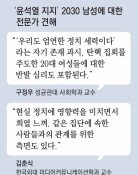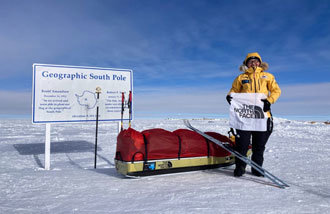[Editorial] Is Helping North Worth More National Debt?
[Editorial] Is Helping North Worth More National Debt?
Posted November. 03, 2005 07:19,
The Unification Ministry said in its management plan for the 2006 inter-Korean cooperation fund which it submitted to the National Assembly yesterday that it would secure an additional 450 billion won by issuing national bonds, adding to the 650 billion won that the government is supposed to pay.
This means that the ministry intends to assist North Korea by extending loans because it is hard to collect taxes for the purpose.
The ministry plans to provide the North with 5.25 trillion won, apart from rice and fertilizer, over the next five years to help six sectors, including agriculture and light industry. Reportedly, it decided to accept part of the Norths request of 30,000 tons of textiles and 60 million pairs of shoes.
Considering some North Korean people are starving to death, food assistance is needed to relieve the food crisis in the North. However, the government went too far by deciding to provide garments and shoes. The government should take into account the peoples ability to pay taxes, especially when they have been suffering for years from economic recession due to the governments mismanagement. The incumbent administration raised taxes to the extent that a majority of people cannot manage. Again, citing a lack of finances, it recklessly increased the national debt, which will be a burden on future generations.
Against this backdrop, there will be few people who will agree on its idea of adding to the national debt in exchange for assisting North Korea.
The earned income tax that salaried workers have to pay next year will increase as much as 12.4 percent from this year. The National Tax Service (NTS) has decided to conduct a regular tax investigation of large conglomerates every four years, instead of every five years.
Because of a large-scale tax investigation that began in September of the Yongsan electronic market, in which some 2,000 companies are operating, companies are temporarily closing or completely shutting down one after another.
Under these circumstances, tax-related lawsuits filed to the Seoul Administration Court for eight months until August this year increased to 399 cases, an almost 60 percent rise from 251 cases of the same period last year. Formal objections to measures by the NTS also grew 39 percent, from 11,562 cases in 2000 to 16,038 cases last year.
While increasing its budget for North Korea despite opposition to higher taxes and more national debt, the administration is saying nothing about the North Korean human rights situation. Against this backdrop, it is only natural that public have negative opinion of North Korean assistance. A survey by Hangil Research shows that 68.9 percent of Seoul citizens answered, The amount of assistance North Korea is getting is a lot, and they also said the market opening of the North and the improvement of the human rights situation should be the main focus of the government`s North Korea agenda.
To fundamentally improve the lives of North Koreans, the introduction of the market economy and market opening must proceed, which will bring economic growth and efficiency. Accordingly, rather than giving out shoes to the North, the government should make a budget for North Korean assistance more efficient to assist the establishment of a market economy.






